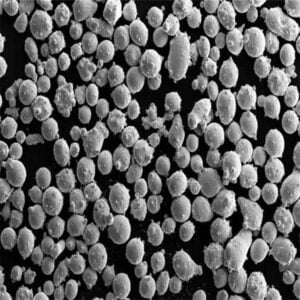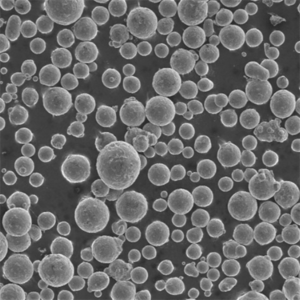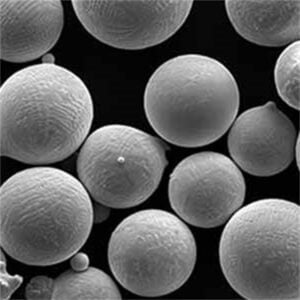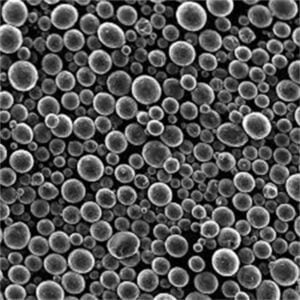Iron Base Alloys 2209: The Comprehensive Guide
Table of Contents
Overview of Iron Base Alloys 2209
Iron Base Alloys 2209 are a specialized group of materials that play a crucial role in industries where high performance, corrosion resistance, and durability are key. This alloy, often found in welding applications, is known for its unique balance of elements like chromium, nickel, and molybdenum, which give it exceptional properties.
But what makes Iron Base Alloys 2209 so special? How do they stack up against other alloys, and where are they most effectively used? In this guide, we’ll delve into every aspect of these alloys, breaking down their composition, properties, and uses. We’ll also compare various metal powder models, discuss suppliers, and even answer some frequently asked questions to give you a well-rounded understanding of this fascinating material.
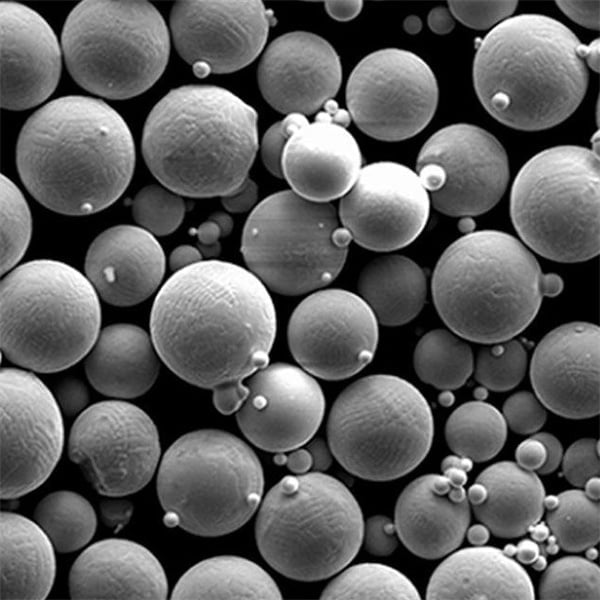
Composition of Iron Base Alloys 2209
Iron Base Alloys 2209 are primarily composed of iron, with significant additions of chromium and nickel, and minor amounts of other elements like molybdenum and nitrogen. These elements are carefully balanced to create a material that is both tough and resistant to corrosion. Here’s a detailed look at the composition:
| Element | Percentage (%) |
|---|---|
| Iron (Fe) | Balance |
| Chromium (Cr) | 20.0 – 22.0 |
| Nickel (Ni) | 8.0 – 10.5 |
| Molybdenum (Mo) | 0.5 – 3.5 |
| Manganese (Mn) | 1.5 – 2.5 |
| Silicon (Si) | 0.8 – 1.2 |
| Nitrogen (N) | 0.08 – 0.2 |
| Carbon (C) | ≤ 0.03 |
| Phosphorus (P) | ≤ 0.03 |
| Sulfur (S) | ≤ 0.02 |
Why does this composition matter? Well, each of these elements contributes something unique to the alloy’s performance. Chromium increases corrosion resistance, nickel enhances toughness and ductility, while molybdenum provides strength at high temperatures. The low carbon content minimizes carbide precipitation, reducing the risk of intergranular corrosion.
Characteristics of Iron Base Alloys 2209
When it comes to performance, Iron Base Alloys 2209 are top-tier. But what exactly are the characteristics that make them so valuable?
Corrosion Resistance
One of the standout features of Iron Base Alloys 2209 is their exceptional resistance to corrosion. Thanks to the high chromium content, these alloys form a passive oxide layer on the surface that protects against corrosive environments, including those found in marine and chemical processing applications.
High Strength and Toughness
These alloys are no pushovers when it comes to mechanical strength. The combination of nickel and molybdenum contributes to their high tensile strength, making them ideal for demanding applications like pressure vessels and piping systems.
Excellent Weldability
Iron Base Alloys 2209 are specifically designed for welding applications, particularly in the joining of dissimilar metals. Their low carbon content and balanced composition make them easy to weld, reducing the risk of hot cracking and other welding-related issues.
Thermal Stability
These alloys maintain their strength and integrity even at elevated temperatures. This makes them suitable for high-temperature applications, such as in power plants and petrochemical industries.
Key Characteristics of Iron Base Alloys 2209
| Characteristic | Description |
|---|---|
| Corrosion Resistance | High resistance to corrosion, particularly in marine and chemical environments due to the formation of a passive oxide layer. |
| Strength | High tensile strength, making it suitable for demanding mechanical applications. |
| Weldability | Excellent weldability with low risk of hot cracking, particularly in joining dissimilar metals. |
| Thermal Stability | Maintains strength and integrity at elevated temperatures, ideal for high-temperature applications. |
| Ductility | Good ductility, allowing for easy fabrication and forming processes. |
| Magnetic Properties | Non-magnetic in the annealed condition, which can be a crucial factor in certain applications. |
Applications of Iron Base Alloys 2209
Given their impressive characteristics, it’s no surprise that Iron Base Alloys 2209 are used across a wide range of industries. Here’s a closer look at some of their most common applications:
| Application | Description |
|---|---|
| Welding of Dissimilar Metals | Ideal for joining stainless steels and carbon steels, especially in the petrochemical and power industries. |
| Pressure Vessels | Used in the construction of pressure vessels due to their high strength and corrosion resistance. |
| Marine Applications | Perfect for components exposed to seawater, thanks to their excellent corrosion resistance. |
| Chemical Processing Equipment | Often used in chemical processing plants where resistance to corrosive chemicals is essential. |
| Power Generation | Utilized in power plants for components that must withstand high temperatures and pressures. |
| Heat Exchangers | Suitable for heat exchangers due to their ability to maintain strength at elevated temperatures. |
These applications showcase the versatility of Iron Base Alloys 2209, highlighting how their unique properties make them indispensable in industries that demand durability and performance.
Metal Powder Models: Specific Types of Iron Base Alloys 2209
Now, let’s dive into specific metal powder models within the Iron Base Alloys 2209 category. Each model has unique characteristics that make it suitable for various applications. Here are ten notable examples:
- 2209A Metal Powder
- Description: This model is optimized for high corrosion resistance, making it ideal for marine environments.
- Applications: Marine structures, shipbuilding, underwater pipelines.
- Properties: Enhanced resistance to seawater corrosion, good weldability.
- 2209B Metal Powder
- Description: A high-strength variant with increased nickel content.
- Applications: Pressure vessels, chemical processing equipment.
- Properties: Superior mechanical strength, excellent toughness.
- 2209C Metal Powder
- Description: Designed for thermal stability, particularly in high-temperature environments.
- Applications: Power generation, heat exchangers.
- Properties: Maintains strength at high temperatures, good oxidation resistance.
- 2209D Metal Powder
- Description: This model offers improved ductility for applications requiring significant forming or shaping.
- Applications: Complex components, fabricated structures.
- Properties: Excellent ductility, easy to form.
- 2209E Metal Powder
- Description: Features low carbon content for applications where intergranular corrosion is a concern.
- Applications: Chemical processing, food industry.
- Properties: Minimizes carbide precipitation, enhanced corrosion resistance.
- 2209F Metal Powder
- Description: A cost-effective variant with a balanced composition suitable for general-purpose applications.
- Applications: General construction, automotive industry.
- Properties: Good all-around performance, cost-efficient.
- 2209G Metal Powder
- Description: Tailored for applications that require non-magnetic properties.
- Applications: Electronics, magnetic-sensitive environments.
- Properties: Non-magnetic, good corrosion resistance.
- 2209H Metal Powder
- Description: High manganese content for enhanced strength and hardness.
- Applications: Wear-resistant components, mining equipment.
- Properties: Increased hardness, improved wear resistance.
- 2209I Metal Powder
- Description: Optimized for welding applications, with a focus on minimizing hot cracking.
- Applications: Welding of dissimilar metals, structural welding.
- Properties: Excellent weldability, reduced hot cracking risk.
- 2209J Metal Powder
- Description: High silicon content for improved oxidation resistance.
- Applications: High-temperature oxidation-resistant components.
- Properties: Enhanced oxidation resistance, good thermal stability.
These models showcase the versatility of Iron Base Alloys 2209, each tailored to specific needs and applications. By selecting the right model, manufacturers can optimize performance and cost-efficiency in their projects.
Specifications, Sizes, Grades, and Standards
When selecting Iron Base Alloys 2209, it’s crucial to understand the available specifications, sizes, grades, and standards. This ensures you get the right material for your specific application.
| Specification | Details |
|---|---|
| Sizes | Available in various forms including powder, rods, sheets, and wires. Common sizes range from fine powders (<45 microns) to large rods (up to 25mm). |
| Grades | Common grades include 2209A, 2209B, 2209C, etc., each with specific properties tailored to different applications. |
| Standards | Conforms to standards like ASTM A240, ASTM A276, and AWS A5.9, ensuring compatibility and reliability across various industries. |
| Supply Forms | Typically supplied in powder form for additive manufacturing, as well as rods and wires for welding applications. |
| Tolerances | Precise tolerances available to meet the strict requirements of industries like aerospace and medical. |
Understanding these specifications helps in selecting the right product that meets both the technical requirements and industry standards, ensuring the best performance in application.
Suppliers and Pricing Details
Choosing the right supplier is critical to ensure you’re getting high-quality Iron Base Alloys 2209. Here’s a look at some top suppliers and the typical pricing details:
| Supplier | Product Range | Pricing | Location | Specialties |
|---|---|---|---|---|
| Alloy Metals Co. | Iron Base Alloys, stainless steel | $25 – $50 per kg | USA | High-quality alloys with custom specifications. |
| Mega Metals | Metal powders, welding rods | $20 – $45 per kg | Germany | Extensive range of metal powders, quick delivery. |
| Global Alloys Inc. | Iron Base Alloys, nickel alloys | $30 – $55 per kg | China | Competitive pricing, large inventory. |
| Metalwerks | Custom alloy powders | $35 – $60 per kg | UK | Specializes in custom formulations and small batches. |
| Tech Metals Ltd. | Additive manufacturing powders | $40 – $65 per kg | Canada | Focus on 3D printing and additive manufacturing. |
Note: Prices may vary based on market conditions, order volume, and specific requirements.
Advantages and Limitations of Iron Base Alloys 2209
Every material has its strengths and weaknesses, and Iron Base Alloys 2209 are no exception. Let’s break down the pros and cons:
| Advantages | Limitations |
|---|---|
| High Corrosion Resistance | May be more expensive than carbon steels |
| Excellent Weldability | Requires precise control during heat treatment |
| Thermal Stability | Limited to applications where its properties are needed |
| Good Mechanical Strength | Heavier than some alternative materials |
| Versatility in Applications | Not as readily available as more common alloys |
Understanding these advantages and limitations helps in making informed decisions about where and how to use Iron Base Alloys 2209 most effectively.
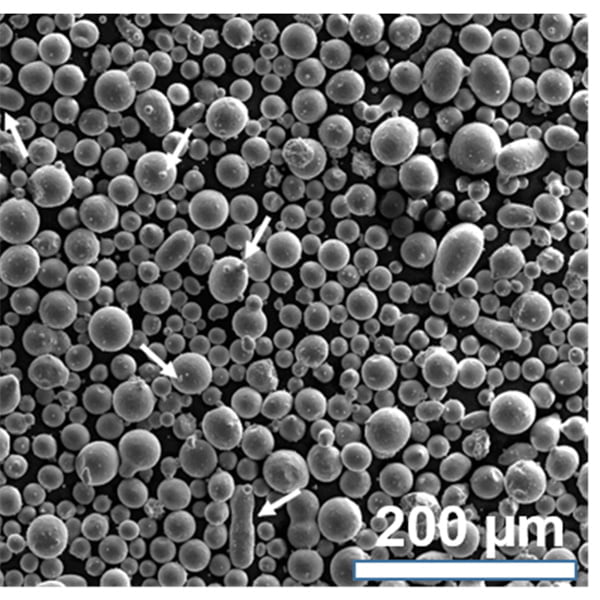
FAQ
To wrap things up, let’s address some frequently asked questions about Iron Base Alloys 2209:
| Question | Answer |
|---|---|
| What industries commonly use Iron Base Alloys 2209? | Industries like marine, chemical processing, power generation, and construction often use these alloys. |
| How do Iron Base Alloys 2209 compare to stainless steel? | While both are corrosion-resistant, Iron Base Alloys 2209 offer better weldability and high-temperature stability. |
| Can Iron Base Alloys 2209 be used in additive manufacturing? | Yes, these alloys are available in powder form and are widely used in 3D printing and other additive processes. |
| Are there any special considerations when welding Iron Base Alloys 2209? | Yes, it’s important to control heat input to avoid hot cracking and other welding defects. |
| What are the key standards for Iron Base Alloys 2209? | Key standards include ASTM A240, ASTM A276, and AWS A5.9. |
Conclusion
Iron Base Alloys 2209 are an incredibly versatile and high-performance material, suitable for a wide range of demanding applications. Their unique composition, coupled with their excellent properties, makes them a go-to choice for industries that require durability, corrosion resistance, and thermal stability.
Whether you’re selecting a specific metal powder model for a welding application or looking for the best supplier, understanding the ins and outs of Iron Base Alloys 2209 can make a significant difference in the success of your project. With this guide, you’re now well-equipped to make informed decisions and leverage the full potential of these remarkable alloys.
Share On
MET3DP Technology Co., LTD is a leading provider of additive manufacturing solutions headquartered in Qingdao, China. Our company specializes in 3D printing equipment and high-performance metal powders for industrial applications.
Inquiry to get best price and customized Solution for your business!
Related Articles
About Met3DP
Recent Update
Our Product
CONTACT US
Any questions? Send us message now! We’ll serve your request with a whole team after receiving your message.

Metal Powders for 3D Printing and Additive Manufacturing
COMPANY
PRODUCT
cONTACT INFO
- Qingdao City, Shandong, China
- [email protected]
- [email protected]
- +86 19116340731






